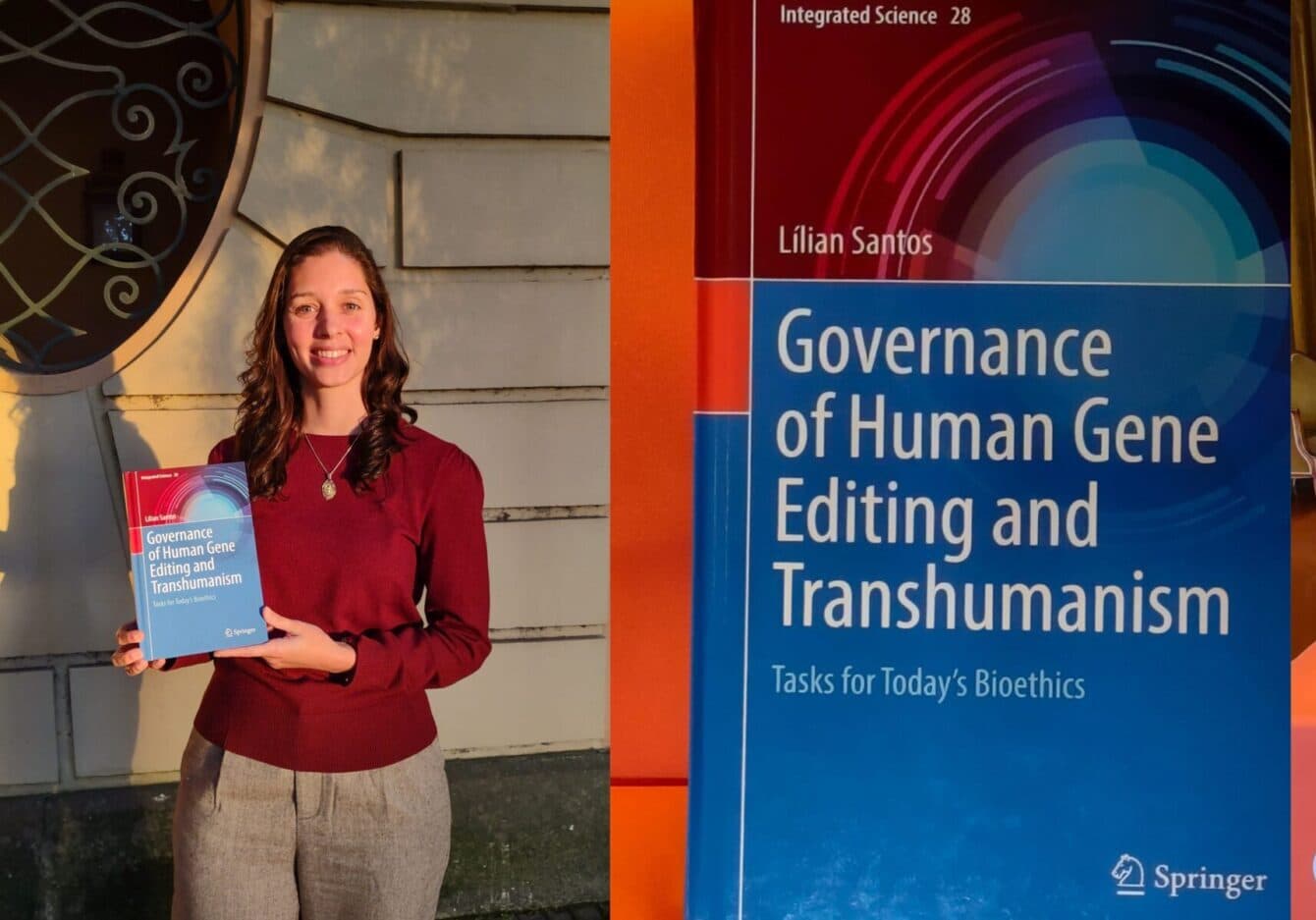
Bioethics & Governance: Insights from Dr. Lílian Santos’ New Book

Dr. Lílian Santos, professor of Bioethics at Catholic Institute of Technology and at Pontifical Athenaeum Regina Apostolorum, published a new book: Governance of Human Gene Editing and Transhumanism: Tasks for Today’s Bioethics. She recently discussed the book with CatholicTech, here are some highlights from Dr. Santos!
This book publishes the second part of my PhD, in addition to some more research that I have done after teaching a subject on Ethics and Governance of Human Gene Editing. This was a process of six years of research – four with my PhD, one year before my PhD (while I was finishing my master’s), and the first year after my PhD as a professor, when I gave a class on the topic and clarified my ideas even more. I’ve structured the book with 10 short chapters that could also be considered papers, so this book makes sense as a whole, but also each chapter can be read separately.
I focused on human genome editing, especially because during my PhD the World Health Organization published a plan for global governance of human genome editing. Global governance is the process of governing that involves different agents and different means; agents meaning scientists, patients, politicians, legislators, investors, etc. Means refers to funding, patents, marketing laws, communication, media, among others. The plan of WHO is an international effort to deal with human genome editing in all countries. They published this when I first submitted my research proposal, so the timing matched perfectly.
The main contributions of this book are the commonalities between Transhumanism and the WHO framework for the governance of human genome editing, the critique of “therapy vs enhancement” and the proposal of a more more suitable paradigm for bioethical analysis, and key elements for the bioethical evaluation of each type of human gene editing. In a few words, I would say that this book invites the audience toward more proactive and constructive Bioethics. Bioethics is not just about pointing out the dangers of misusing technologies. It is also here to inspire, confirm, and encourage good uses of technology. Bioethics sets the direction for the high-tech marathon, for there is no point in running fast but in the wrong direction. Genuine progress is ethical and favors nature and humanity.

An important part of this book was the tasks for today’s Bioethics. First, I applied a method to find common themes in the original texts of Transhumanism and WHO texts on the governance of human gene editing. Then, looking at the common themes, I asked: ‘what should bioethicists do?’ I enjoyed working on the creative part of Bioethics. Technology develops fast and sometimes there are no fast and complete answers. We are trying to find a better way of managing human genome editing globally, and we need to be aware of different cultures, different mentalities, and values. Human gene editing alters something that belongs to all of us. Some applications have already resulted in effective treatments or preventions. This is wonderful. We should promote and develop it even more, and make it safer and more available, and engage the public discussion on gene editing.
I think a big challenge that bioethicists face today is therapy versus enhancement. In recent history, bioethicists would say that interventions for therapy were considered good, and enhancement, for improving some trait or functioning, was not good. Then, very honestly, there are many things that are not therapeutic – people dye their hair, take supplements, whiten their teeth, do diets – so we intervene in our bodies for other processes that aren’t therapy and prevention of diseases. Bioethicists should look for the proportionality between the necessity and risks, not categorically condemning human desire for more, but without being naive. It’s really an exercise of prudence, prudence that includes but goes beyond caution, looking for the adequate means for each action. It’s a process of discernment, and bioethicists should apply that to the new technologies.
Technology is developing at an exponential rate. What seems impossible or too risky today, might be possible or feasible tomorrow. Society’s mentalities and moral values are also changing. Bioethicists should be proactive, constructive, and proposal-oriented regarding issues that are still being shaped. I hope this book can be a contribution to the current global governance of human gene editing.
This is the first book to be published that mentions Catholic Institute of Technology! Follow along with Dr. Santos’ publication and more faculty research news on our website!





